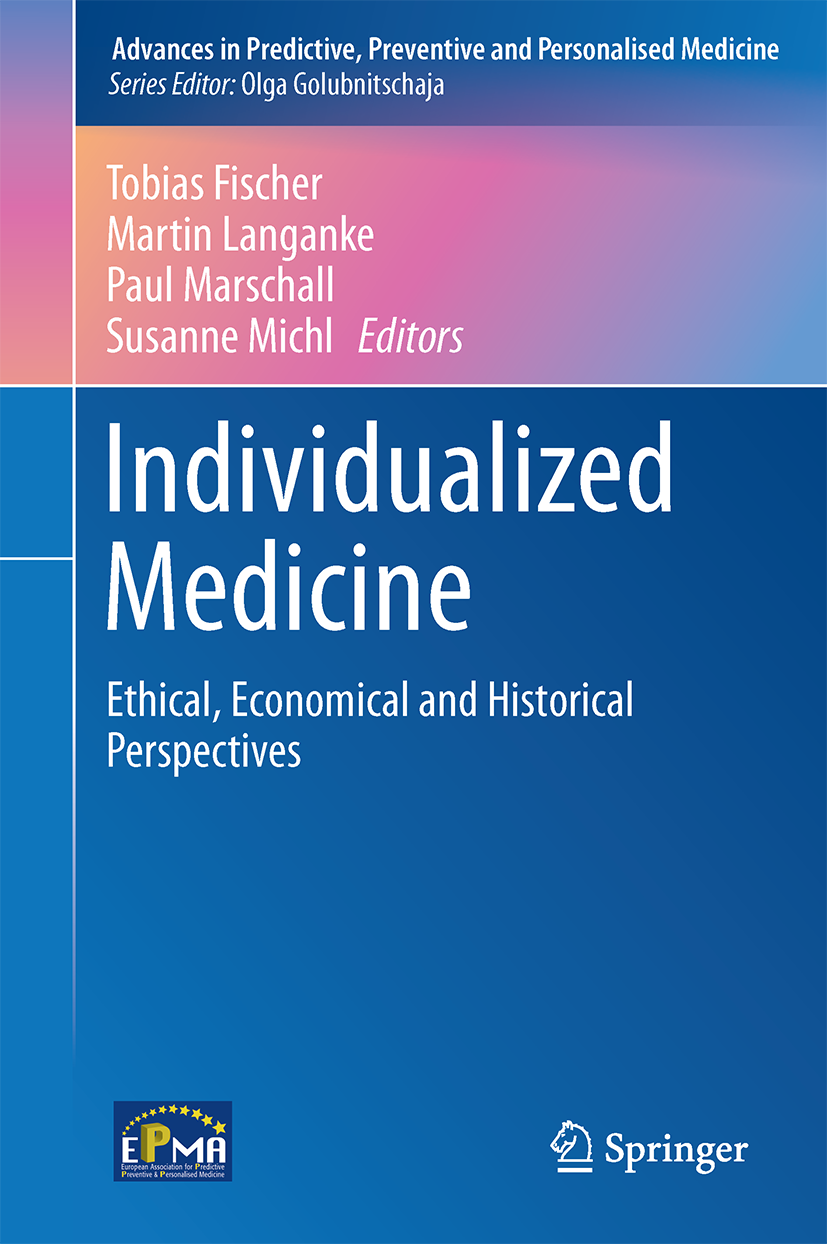Health Economic Assessment of Individualized Medicine
In 2009 the University Medicine Greifswald launched the “Greifswald Approach to Individualized Medicine” (GANI_MED) to implement biomarker-based individualized diagnostic and therapeutic strategies in clinical settings.
Individualized Medicine (IM) has led not only to controversies about its potentials, but also about its societal, ethical and health economic implications.

Individualized Medicine
Ethical, Economical and Historical Perspectives
ISBN 978-3-319-11719-5
Erscheinungsdatum: Januar 2015
Chapter
Individualized Medicine: From Potential to Macro-Innovation
Steffen Flessa, Paul Marschall
Individualized Medicine has the potential to change the relationship of doctors and patients, to alter the rules, institutions and regulations of the health care sector and even to influence societal values. However, there are major barriers preventing the key stakeholders to adopt this new approach to medicine. The aims of this contribution are: First, to analyze these barriers. Second, to investigate, whether Individualized Medicine has the potential to become a macro-innovation. It concludes that Individualized Medicine is still in an early stage of the development and adoption process so that it has to mature in a niche before it can become the new standard solution for the health care system for allocating scarce resources.
Assessing Individualized Medicine—The Example of Immunoadsorption
Steffen Flessa, Wolfgang Hoffmann, Timm Laslo, Paul Marschall, Kerstin Weitmann
Biomarkers can be used for the prediction of treatment response within the context of widespread diseases. The aim of this contribution is to address this issue from the economic perspective. Based on time studies and investigations of used resources at the University Medicine Greifswald some preliminary results for the costs of the Immunoadsorption therapy with subsequent IgG (IA/IgG) substitution and the corresponding gene expression analysis are provided. Under the current setting the latter can be regarded as diagnostics for deciding, if IA/IgG is appropriate. Currently, both parts of the IM tandem are not implemented in combination in clinical routine. It is argued that the reimbursement system has a critical role for providing incentives for health care providers to translate research into routine. In addition some preliminary results of outcome evaluation based on disease-related quality of life are provided.
How Individualized is Medicine Today?
Steffen Flessa, Timm Laslo, Paul Marschall
Heart failure is currently one of the most cost-intensive diseases in Germany. It also represents one of the most common reasons for hospitalization. Currently the remuneration of hospitals in the German DRG system (G-DRG) is carried out by using a lump sum for each case of inpatient treatment. The system must be able to map complex cases. This contribution aims to analyze how a pathway for clinical care is apparent for heart failure using the example of the base DRG F62. Therefore, a comprehensive data set from the University Medicine Greifswald is used. By analyzing cost homogeneity of the base DRG F62 it becomes clear, that there are high variations within case groups. Heart failure is treated in a very individualized way today. It is concluded, that highly complex diseases such as heart failure can challenge the G-DRG-system to its limits. Therefore, an adequate adjustment in order to reflect the risk for health care providers in an acceptable way will be required. Implementing methods for risk adjustment could be one possible solution.
Ansprechpartner an der Fakultät
Lehrstuhlinhaber für Allgemeine Betriebswirtschaftslehre und Gesundheitsmanagement
Friedrich-Loeffler-Straße 70
17489 Greifswald
Telefon +49 3834 420 2476
Telefax +49 3834 420 2475
